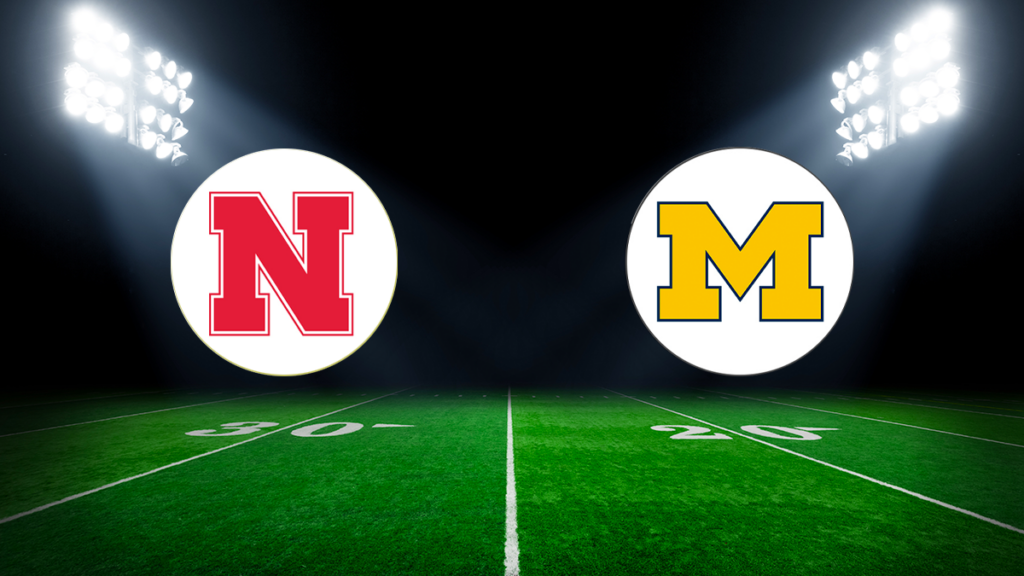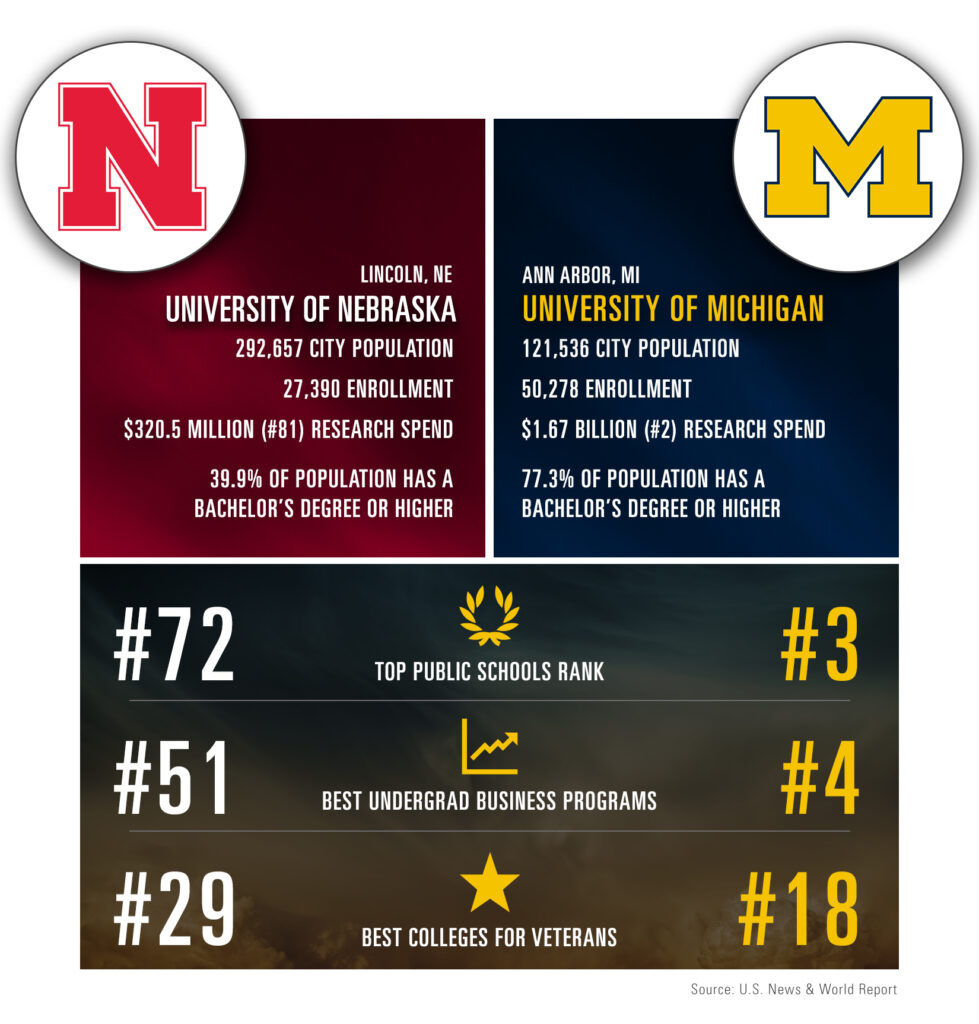
Week 11: Saturday, November 12, 2022 | Michigan vs. Nebraska | Michigan Stadium | 3:30pm EST
Ann Arbor SPARK’s popular football blog series is back for Michigan’s 143rd season! We use the football season as an opportunity to compare Ann Arbor to cities around the country represented by our U-M football competition. The question is always – how does Ann Arbor compare to other college towns in the U.S.?
The No. 3 Wolverines (9-0) host the University of Nebraska Cornhuskers (3-6) this week at the Big House in a matchup Michigan is predicted by many to win. To date, the two teams have only faced off 11 times since 1905, with Michigan leading the series, 6-4-1 (legend has it the game in 1911 resulting in a tie was a real nail-biter).
Fun fact: According to Lincoln’s Asian Community and Cultural Center, Lancaster County is the nation’s 18th-largest resettlement area for Asian refugees and immigrants. While the first thing that likely comes to mind when thinking of Nebraska is not its banh-mi, Lincoln actually has a rich history of refugee resettlement. Specifically, in the 1970s the U.S. government designated Lincoln as a refugee-friendly city due to its stable economy, educational institutions, and size. As a result, large numbers of refugees from Vietnam settled in Lincoln, and further waves came from other countries. So much so that in 2013, Lincoln was named one of the “Top Ten most Welcoming Cities in America” by Welcoming America.

When it comes to comparing the two cities, Lincoln is actually closer to Ann Arbor than some of our past analyses in terms of population demographics, however, it’s about twice as big (121,536 people in Ann Arbor and 292,657 people in Lincoln). Lincoln is Nebraska’s state capital, and while there is also a university in town, the largest employer is by far the State of Nebraska.
The cost of living is relatively low in Lincoln (95.0 compared to 100.4 in Ann Arbor) which is also reflected in the median household income ($62,352 compared to $75,730 in Ann Arbor). As of September 2022, Lancaster County reported an unemployment rate of only 1.9 percent, which is lower than the rate of 3.3 percent in Washtenaw County. Ann Arbor’s educational attainment bests that of Lincoln’s by more than double with more than 77 percent of the population possessing a bachelor’s degree or higher compared to only 39 percent in Lincoln.
Be on the lookout for our blog posts ahead of each game all season long and be sure to tag us when you share these interesting tidbits with your friends via social media! And, if you want more information like this or are curious to learn more about the Ann Arbor region and what makes it such a great place to live, work, and locate your business in, please reach out to our Director of Research, Melissa Sheldon.
In case you missed it, here are links to the regional comparisons we’ve posted so far this year:
- Week 1: Ann Arbor vs. Fort Collins
- Week 2: Ann Arbor vs. Honolulu
- Week 3: Ann Arbor vs. Storrs Mansfield
- Week 4: Ann Arbor vs. College Park
- Week 5: Ann Arbor vs. Iowa City
- Week 6: Ann Arbor vs. Bloomington
- Week 7: Ann Arbor vs. State College
- Week 8: Bye Week
- Week 9: Ann Arbor vs. East Lansing
- Week 10: Ann Arbor vs. New Brunswick
Sources
Where do we get our numbers? And what do they mean?
- Population data comes from the U.S. Census, 2021 Population Estimates. Check out Ann Arbor’s data.
- Enrollment data comes from the Integrated Postsecondary Education Data System (IPEDS). Review University of Michigan data.
- Research expenditure data comes from the National Science Foundation. View the Rankings by Total R&D Expenditures.
- Educational attainment data comes from the US Census 2016-2020 American Community Survey Five-Year Estimates. We look specifically at the population over the age of 25, and the highest level attained. Check out Ann Arbor’s data.
- The rankings come from U.S. News and World Report unless otherwise noted.